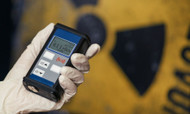The Dos and Don’ts When Using Radiation Detectors
Posted by William Kimmell on 25th Oct 2023
Excessive radiation can pose significant health risks, necessitating the use of devices known as radiation detectors for monitoring and management. These devices contribute significantly to maintaining safety in various environments, like nuclear power plants, hospitals, and research facilities.
The effectiveness of radiation monitors relies on their proper usage, making it crucial to understand and adhere to certain guidelines for handling, interpreting, and maintaining these devices. Protect your workplace by knowing the dos and don’ts when using radiation detectors.
Do: Handle With Care
These critical devices require delicate handling to guarantee their longevity and accuracy. When using your radiation detector, make sure you store it in the appropriate carrying case and handle it with attention and caution. Additionally, avoid subjecting your device to extreme temperatures or heavy impacts. Taking these simple measures will help ensure your detector operates efficiently and provides reliable readings.
Don’t: Misinterpret Readings
Misinterpreting readings from your radiation monitor could have dire consequences. Unfamiliarity with your device, incorrect settings, or calibration issues are just three common reasons for misunderstood readings. Familiarize yourself with the various functions and modes of your detector, and always verify the correct settings before interpreting the readings.
Do: Regularly Calibrate Your Detector
Ensuring your device remains accurate and reliable requires routine calibration checks. Typically, manufacturers recommend a specific time interval for calibration, but heavy usage may warrant more frequent checks. Many organizations and brands recommend annual calibration, but be sure to consult your device’s instruction manual and follow the manufacturer’s recommendations for calibration.
Don’t: Neglect Routine Maintenance
Just as with any sensitive equipment, routine maintenance is of the utmost importance for radiation monitors. Neglecting regular upkeep can lead to inaccurate readings and even device failure. Inspect your radiation detector before every use for signs of wear or damage, and replace or repair components as necessary. Follow a comprehensive maintenance schedule to ensure your device’s reliability.
Do: Receive Proper Training
Proper operation of a radiation detector requires adequate training. Investing time and resources into thorough training sessions—and refreshing that training periodically—will ensure you fully comprehend how to use and interpret readings from your radiation detector.
Following the dos and don’ts of using radiation detectors protects workers and ensures the accuracy of readings. Operators must handle the devices carefully, interpret the readings correctly, and perform routine maintenance for optimal functioning. Training helps operators use the devices confidently and enhances the safety of radiation detection.

